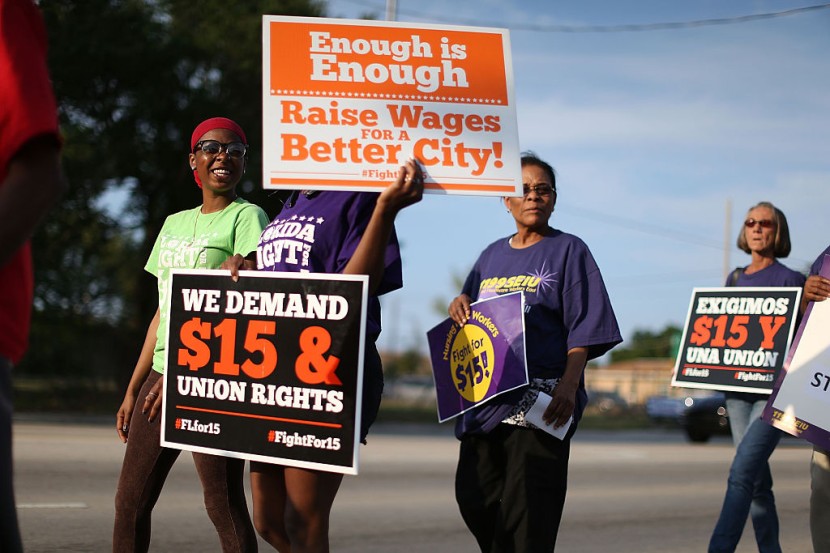Minimum wages taking effect in 22 states on January 1 are expected to provide a substantial economic boost for almost 10 million workers.
The left-leaning Economic Policy Institute estimates that the increased baseline wages will contribute nearly $7 billion in additional annual income. In California, New York, and Washington, the baseline pay will reach at least $16 an hour. Beyond state-level hikes, 38 cities and counties are also set to raise their minimum wages, as per CBS News.
Nearly 10 Million US Workers to Receive Wage Increase

This initiative, set to benefit 9.9 million workers, sees minimum-wage adjustments in 22 states from January 1, with Nevada, Oregon, and Florida planning increases later in the year. The adjustments range from 23 cents to $2, resulting in new state minimum wages between $10.30 and $16.28. Washington state is set to have the highest minimum wage at $16.28, followed by California at $16.
Additionally, approximately 40 counties and metropolitan areas will surpass their state minimum wages. For instance, Denver is increasing its minimum wage to $18.29, higher than Colorado's new minimum of $14.42. The Seattle suburb of Tukwila, Wash., mandates higher minimums for larger and medium-size employers than the state's new $16.28 minimum.
Various industries, including healthcare and fast-food, particularly in California, where two union-backed wage bills were signed, may witness raises in 2024.
While this marks a positive step for the 25 states raising minimum wages, 20 states will maintain the federal minimum wage of $7.25, last updated in 2009. Some states have minimum-wage mandates higher than the federal rate but do not plan increases in 2024.
As of October, around 3 million workers (2% of the US workforce) earned less than $10 an hour, and close to 18 million earned less than $15 an hour. Despite these increases, advocates argue that the starting point for the minimum wage is still considerably lower than needed, according to Market Watch.
Living Cost Debates Spark Calls for Higher Minimum Wages
A living wage, considered to be $20 an hour, is notably higher than most state and local minimum wages. Critics argue that the recent pay increases are insufficient, emphasizing the need for a more substantial adjustment to adequately cover living costs.
The current federal minimum wage, unchanged since 2009, has not kept pace with inflation, with its real value decreasing. While nominal wages have risen in recent years, concerns about financial situations persist among workers. Real wage growth is softening, and the recent inflation surge has eroded the value of wages.
In a post-pandemic scenario, the labor market, although stronger than pre-pandemic levels, is showing signs of slowing demand from employers. Despite the overall improvement, low-paying jobs may face neglect when job opportunities are abundant. With a more competitive job market, some workers might opt for minimum-wage jobs temporarily.
The 2024 minimum-wage increases are crucial for workers, but some argue they fall short. Analysts anticipate a potential shift back toward an "employer's market" as demand from employers slows down. While these increases are a positive step, the debate about achieving a living wage and addressing economic inequalities continues.
The 22 states implementing minimum-wage increases include Alaska, Arizona, California, Colorado, Connecticut, Delaware, Hawaii, Illinois, Maine, Maryland, Michigan, Minnesota, Missouri, Montana, Nebraska, New Jersey, New York, Ohio, Rhode Island, South Dakota, Vermont, and Washington. Maryland, New Jersey, and upstate New York will reach or exceed $15 an hour for the first time in 2024, Patch reported.
Related Article : Ci
Related Article : vil Rights Groups Call Foul on Texas Immigration Policy
© 2026 HNGN, All rights reserved. Do not reproduce without permission.








